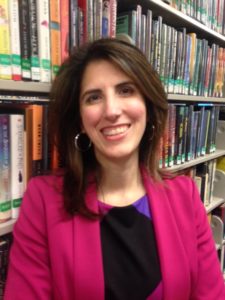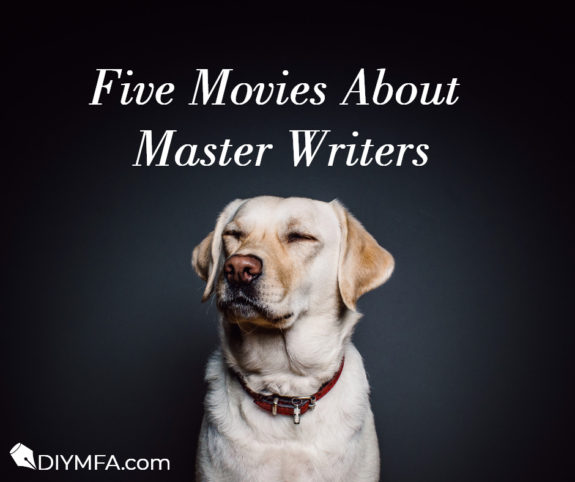If you could ask Charles Dickens one question about writing, what would it be? Would you ask him how he thought up memorable character names such as Scrooge and Miss Havisham? Or, would you simply request to look over his shoulder, quill in hand, as he plots out “David Copperfield?”
Thanks to filmmakers, who are as equally fascinated by famous authors as we writers are, there are countless movies that let you observe Dickens and other master writers at work. Think of these movies as one-on-one masterclasses taken in the privacy of your own home. Pay attention and be prepared to take notes as we take a break from reading this month. Instead, join us in learning writing tips from the world of cinema.
1) Charles Dickens: The Man Who Invented Christmas (2017)
The most recent film on our list focuses on the time between two of Charles Dickens’s most successful books. In 1838, Oliver Twist made Dickens a household name and resulted in a financially lucrative tour of America. Multiple rejections and unsuccessful books followed, leaving Dickens and his family almost as poor as the orphan that propelled him to fame. The audience watches his writing process as he creates A Christmas Carol, the book that ultimately restores his name and fortune.
In the movie, Dickens uses the DIY MFA formula to write the book that has been loved for generations. First, he reads with purpose. He knows he wants a ghost or ghosts to figure prominently so, he borrows books about vampires and Irish ghost stories from his children’s nanny. Then, he writes with focus. He has a private study where we see him not only writing but pacing while trying different character names aloud. Although his family has orders not to bother him and he is on a particularly tight deadline to finish the manuscript before Christmas, the constant interruptions are something all writers can relate to, and provide for some happy coincidences that make it into his plot. Finally, Dickens builds his community at a local supper club frequented by writers, reviewers, and publishers. It’s great fun to see him jot down the name of someone he meets there for use as a future character.
2) Ernest Hemingway: Papa: Hemingway in Cuba (2015)
This movie was filmed in Hemingway’s actual home, Finca Vigia, which still contains many of his personal artifacts. Most exciting for writers is seeing the author’s actual typewriter and personal book collection. While the film focuses on the Cuban revolution and Hemingway’s stormy fourth marriage, there are still writing tips to be gleaned for the observant viewer.
Hemingway offers to mentor journalist and novelist Denne Petitclerc (called Ed Myers in the movie). His main lessons are to (1) find the real story and (2) less is more. In one memorable scene, Hemingway asks the younger writer to pick a number between one and ten. The number selected is six. Then, Hemingway writes a complete short story in just six words:
“For sale – baby shoes. Never worn.”
Masterful!
3) John Keats: Bright Star (2009)
This is one for the poets in the DIY MFA community. Mentions of repetition, rhyme, imagery and allusion are scattered throughout the script. We also are treated to beautiful dialogue, since many of the lines are taken from Keats’s poetry and correspondences.
Keats utilizes the accountability system in his writing. That is, he works alongside another writer (Charles Armitage Brown) in the same room everyday. They read aloud their day’s output and offer critiques. Be warned, however, that this real-life story is part romance and part tragedy. Like all great poetry, your heart will soar and break in equal measure.
4) Jane Austen: Becoming Jane (2007)
Before there was Mr. Darcy, there was Mr. Lefroy. This film is not so much about Austen’s writing process as it is about someone who influenced her writing. Tom Lefroy and Jane Austen could not marry because neither of them had much money. Years later, they both went on to have highly successful careers. He as an Irish magistrate (who named his first daughter Jane) and she as a famous novelist. It’s highly suspected that Austen based the character of Mr. Darcy on Lefroy, although with a much happier ending.
This movie reminds us that sometimes the best ideas come when you’re not writing. When Jane encounters writer’s block, she walks away and plays the piano instead. We also see her reading quite a bit. It is Lefroy who suggests she read A History of Tom Jones by Henry Fielding. In the movie, he also takes her to meet author Ann Radcliffe. Although most scholars believe no such meeting occurred, we do know Jane Austen was a fan of Radcliffe’s style.
5) Marjorie Kinnan Rawlings – Cross Creek (1983)
While this is the oldest film on our list, I know several writers who return to this film year after year. It has a cozy, writer’s retreat feel, and the big takeaway is to write what you know.
Mary Steenburgen plays Rawlings, who journeys to rural Florida for some uninterrupted writing time. Rawlings is determined to write gothic romances–love stories with a castle as a setting. As her New York editor receives her completed pages, he is unimpressed. Instead, he looks forward to the chatty letters Rawlings includes with her work. The letters tell of the interesting people, customs and events she’s encountered in 1930’s Florida.
“Write about that,” famous editor Max Perkins instructs her. “Write about Cross Creek.” Thus is born a classic of American literature–The Yearling.
Advanced Coursework
All classes eventually come to an end. Today, we only had space to cover writing tips from five movies. Your assignment is to find online previews of the films, and then decide which masterclass you’d like to take in full. Here are a final few ideas to get you started. If anyone has other favorites, please comment below–especially if you’re aware of any films featuring writers of color.
- New Zealand author Janet Frame: An Angel at My Table (1990)
- Elizabeth Gilbert: Eat Pray Love (2010)
- Sylvia Plath: Sylvia (2003)
- Virginia Woolf: The Hours (2002)
- Julie Powell and Julia Child: Julie & Julia (2009)
- Truman Capote: Capote (2005)
- Boston Globe reporters: Spotlight (2015)
- Bob Woodward and Carl Bernstein: All the President’s Men (1976)
 Terri Frank is a professional librarian and holds a Master’s degree in library and information science from the University of Michigan. When she’s not working in a library, she’s probably visiting a library with her husband and two kids. Her current writing projects include a novel about a tuberculosis sanitorium.
Terri Frank is a professional librarian and holds a Master’s degree in library and information science from the University of Michigan. When she’s not working in a library, she’s probably visiting a library with her husband and two kids. Her current writing projects include a novel about a tuberculosis sanitorium.







